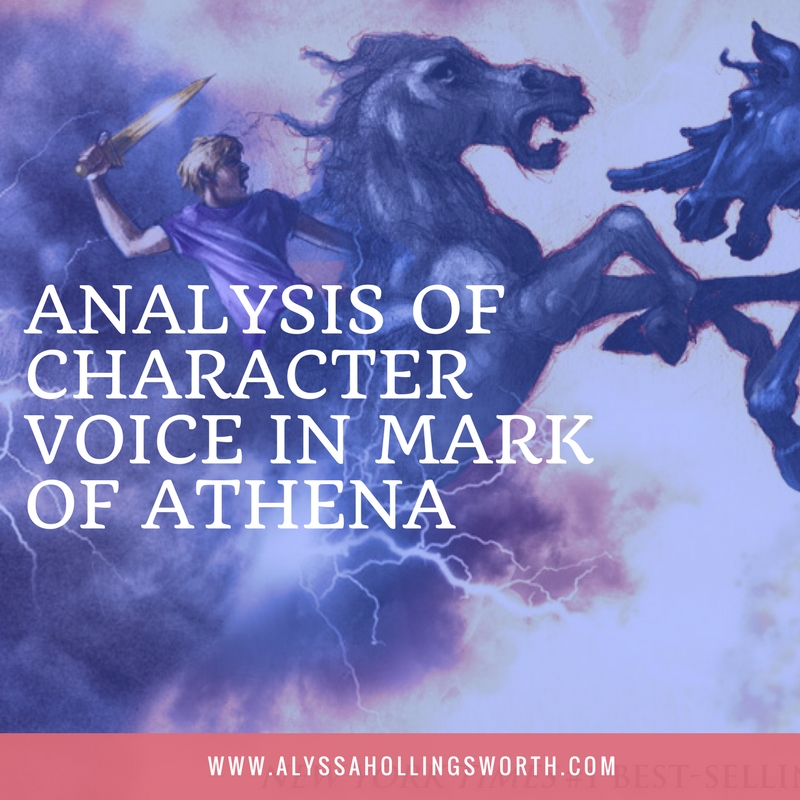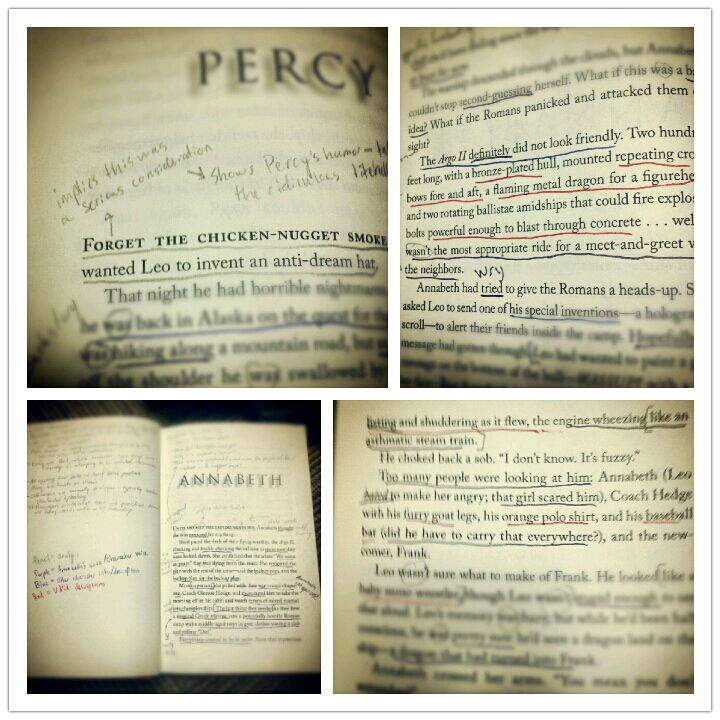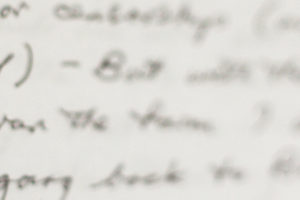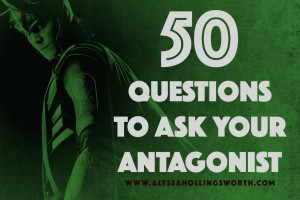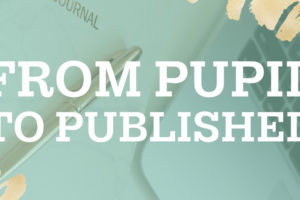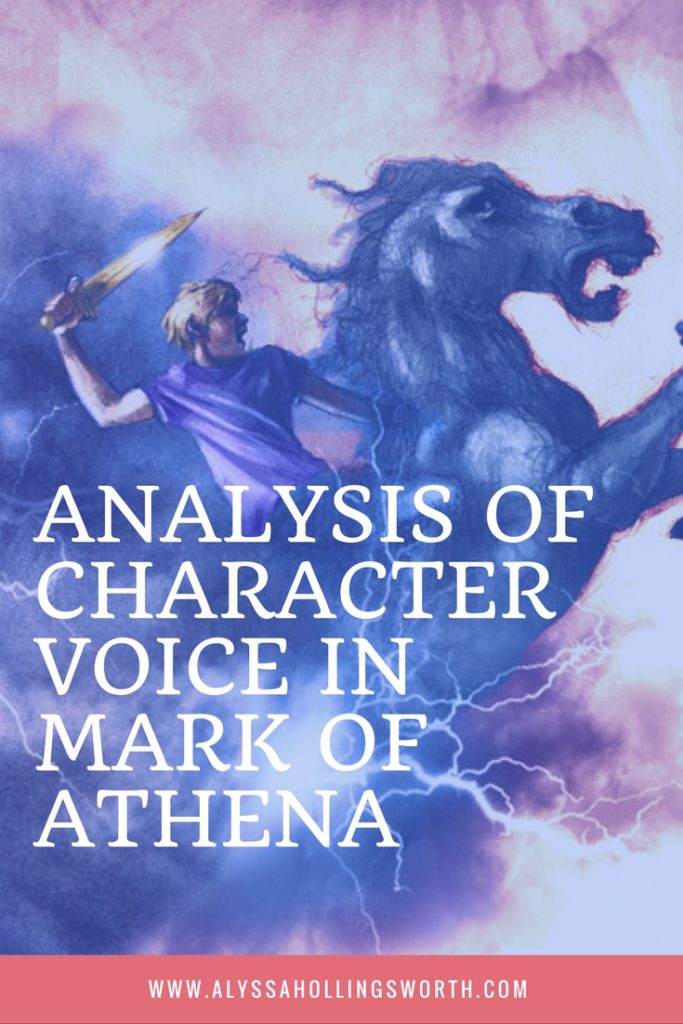 After consuming the Mark of Athena in a matter of days, I approached my writing professor to rave about my reading experience. Since I kept talking about character voice and the beginnings/endings of chapters, she recommended I have a look at the book and think about ways Riordan wrote these elements, so that I might glean something for my own novel.
After consuming the Mark of Athena in a matter of days, I approached my writing professor to rave about my reading experience. Since I kept talking about character voice and the beginnings/endings of chapters, she recommended I have a look at the book and think about ways Riordan wrote these elements, so that I might glean something for my own novel.
She probably didn’t expect me to go through all four points of view with multicolor pens and margin notes.
Writing tips below the cut! I’ve taken the first chapter containing each character’s narration and analyzed the heck out of it. MINOR SPOILERS FOR THE BOOK. Nothing crazy, though.
Chapter 1 – Annabeth’s POV
Opening Line: “Until she met the exploding statue, Annabeth thought she was prepared for anything.”
One thing Riordan loves to do is turn cliches on their head. Here, the cliche “prepared for anything” is made amusing by the craziness of meeting an exploding statue. Notice that he says “met”–which immediately clues the reader into the fact that the exploding statue is apparently alive.
All of Riordan’s opening lines come with some questions, which act as hooks. In this case, here are some questions that sprang to my mind:
- How is the statue alive?
- How did Annabeth meet it?
- Why is it exploding? Where is it exploding?
- How was she prepared? What was she preparing for?
- What happened before the statue exploded?
- What will happen next?
Closing Line/Paragraph: Terminus (the exploding statue) sniffed. “I suppose. For now. You may climb down your ladder to New Rome, daughter of Athena. Please try not to destroy my town.”
The statue–a potential threat–is obviously reluctant, which builds suspension. The last line is humorous and, in retrospect, ironic and foreshadowing. Again I’m left with a question: Will the team (and the town) survive?
Annabeth’s Voice
Annabeth is constantly planning and prioritizing. This scene particularly highlights this characteristic because of the setting: They’re about to land in a “potentially hostile Roman camp” (can you hear her planning even in that phrase?). A lot of words clue this off in the first page: Prepared, checking/double-checking, confirmed, reviewed the plan, backup plan/backup plan for the backup plan, important, the last thing, order.
Annabeth also has a distinctly wry voice–weirdly, something I never really picked up on until analyzing this excerpt. Consider:
She confirmed that the white “We come in peace” flag was flying from the mast.
The quotes around “we come in peace” acts both as clarification for the young adult and middle grade readers and a dry observation by Annabeth. To Annabeth, it’s obvious what the white flag represents. She clarifies it to add emphasis to how unstable their approach to New Rome is–and how entirely up in the air their reception will be (ha ha, pun). With that little phrase, the reader gets a sense of her attitude: She’s fully aware of how crazy this is and is not expecting the best results, but she has thought the whole thing out.
During the description of the Argo II on page 2, Annabeth’s way of describing the ship is far different from Leo’s (below). She’s second-guessing herself, and starts to analyze the ship as she tries to determine what the Romans are going to think.
The Argo II definitely did not look friendly. Two hundred feet long, with a bronze-plated hull, mounted repeating crossbows fore and aft, a flaming metal dragon for a figurehead, and two rotating ballistae amidships that could fire explosive bolts powerful enough to blast through concrete… well, it wasn’t the most appropriate ride for a meet-and-greet with the neighbors.
Her description is concise, blunt, specific and wry.
Chapter 5 – Leo’s POV
Opening Line: “Leo wished he could invent a time machine.”
Again, this works because it’s a cliche that could be literal. There’s a good chance Leo could invent a time machine. (Doctor Who crossover? Please?)
Anyway, my questions:
- Why does he want to go back in time?
- What would he do differently?
- What’s his deal? (This is a very Leo thing to wish and Leo had not been acting like himself in the chapter before.)
Closing Paragraph: “Fine,” she decided. “We’ll meet you back here as soon as possible, but stay safe. We could use some good luck. That doesn’t mean we’ll get it.”
Guess who the “she” is?? No, no, guess. Isn’t it cool how her voice comes across so strongly we don’t even need her name spelled out to know she’s speaking?
Anyway.
There’s a dry humor here, partially because we know by now the characters definitely don’t have any good luck. It raises the question: Will they get back?
Leo’s Voice
Leo’s voice is a mixture of humor (often on the over-the-top end, like a young teenage boy), metaphor, and passive voice. Consider how different his description of the ship is from Annabeth’s on a grammatical level:
Leo slumped against the mast. His head still throbbed from hitting the deck. All around him, his beautiful new ship was in shambles. The aft crossbows were piles of kindling. The foresail was tattered. The satellite array that powered the onboard Internet and TV was blown to bits, which had really made Coach Hedge mad. Their bronze dragon figurehead, Festus, was coughing up smoke like he had a hairball, and Leo could tell from the groaning sounds on the port side that some of the aerial oars had been knocked out of alignment or broken off completely, which explained why the ship was listing and shuddering as it flew, the engine wheezing like an asthmatic steam train.
That’s a lot of passive voice for one paragraph. It draws attention to Leo’s detail orientation. His assessment of the ship is almost academic. He’s not thinking about its potential threat to the Romans, he’s concentrating on what is broken and will need to be fixed. Notice too that he names the figurehead, whereas Annabeth (who knows the name) did not.
The use of metaphor is also very obvious–there are two metaphors in this one paragraph, and his entire chapter is littered with them. Notice too that he uses several common turns of phrase. I think this reflects that he has a hard time understanding things and people without them being in relation to something else.
Chapter 9 – Piper
Opening Line: “Piper didn’t want to use the knife.”
Concise, to the point. “Didn’t want” implies she will against her inclination–which brings up the question of emotion. What emotions make her not want to, and what emotions persuade her to do it? Other questions:
- Why not?
- What knife?
- What for?
Closing Line: “Well,” she ventured, “how do you guys feel about Kansas?”
The “she” in this sentence is obviously not Annabeth. We’re tipped off by three different words: Well (implies uncertainty/timidity), ventured, feel. This ending leaves me with three questions: Who is the man (they’re going to Kansas to see)? How will he help? Why Kansas?
Piper’s Voice
Piper couldn’t share the visions she’d seen. They were too disturbing. … But he could still tell when she was upset, and she was pretty sure her dad had encouraged Coach to look out for her.
She shouldn’t draw her blade. It would only make her feel worse.
Piper’s tone is very informal–actually, the most informal of them all. It’s full of contractions. She also pays a lot of attention to feelings and intuition. Makes sense, since she’s a child of Aphrodite. In this section, we can see her attention to feelings most obviously in the last line. But also “too disturbing” and “pretty sure” are made into emotional judgments by “too” and “pretty.” She’s attune to her dad and Coach’s relationship, which is why she says he “encouraged” Coach instead of saying he “asked” or “told.” (This also implies she’s interested in the use of emotion toward manipulation–but that’s very subtle.) Her intuition is shown in her knowledge that her dad “could still tell when she was upset.”
Chapter 13 – Percy
Opening Line: “Forget the chicken-nugget smoke screen. Percy wanted Leo to invent an anti-dream hat.”
Guys, guys. I can’t tell you how much I love this opening line. Let’s look at how it shows Percy’s voice right off the bat.
The chicken-nugget smoke screen was a suggestion by Leo earlier about losing some people on their tail. “Forget” implies that Percy thought this was a serious consideration. This perfectly shows Percy’s sense of humor–he sees the world literally, even the ridiculous. Very different from Annabeth, who sees the world logically and is wry about its contradictions, or Leo, who sees the world in an over-the-top way through relationships.
Percy also narrators in short sentences. These two sentences could easily be connected by a comma or a dash. But Percy separates them off into two sentences.
Some questions I thought of:
- Why the chicken-nugget smoke screen in particular?
- What’s bad about dreams?
- Why do Percy’s dreams seem particularly bad (compared to the others’)?
Closing Line: When he woke, daylight was coming through the glass floor, and a boy’s voice said, “Oh… You are in so much trouble.”
First off, this is Frank speaking. He’s the only boy who is rule-conscious on the ship… Well, the only rule-conscious boy whose first reaction would be so adorably juvenile.
My question: What will happen and how will they be punished?
Percy’s Voice
For the first time in his life, he understood what it was like to drown.
It’s just a dream, he told himself. I’ll wake up.
But that didn’t make it any less terrifying.
Percy is constantly attempting to reason logically with what he observes. Twice in two pages the phrase “he told himself” appears while he’s trying to logic away his fears.
He stood in a vast gloomy space like an underground parking garage. Rows of stone pillars marched off in every direction, holding up the ceiling about twenty feet above. Freestanding brazier cast a dim red glow over the floor.
Percy couldn’t see very far in the shadows, but hanging from the ceiling were pulley systems, sandbags, and rows of dark theater lights. Piled around the chamber, wooden crates were labeled PROPS, WEAPONS, and COSTUMES. One read: ASSORTED ROCKET LAUNCHERS.
Percy’s description lacks analysis. He simply describes what he sees, with very little reflection. He doesn’t even react to the assorted rocket launchers–he just accepts it. He does use one metaphor, but again his description is mostly just literal.
Final Notes:
- Opening lines raise at least three questions. Normally it’s a twist on a cliche.
- Cliffhangers are normally dialogue, typically spoken by a character who is not the narrator.
- Cliffhangers contain at least one question for the reader to wonder (hook). Normally they are funny, ironic, and/or a bit foreboding.
- Each character’s voice directly reflects their personalities and conflicts.
- Rick Riordan is amazing.
What do you think? Did I miss anything? Leave a comment below!

